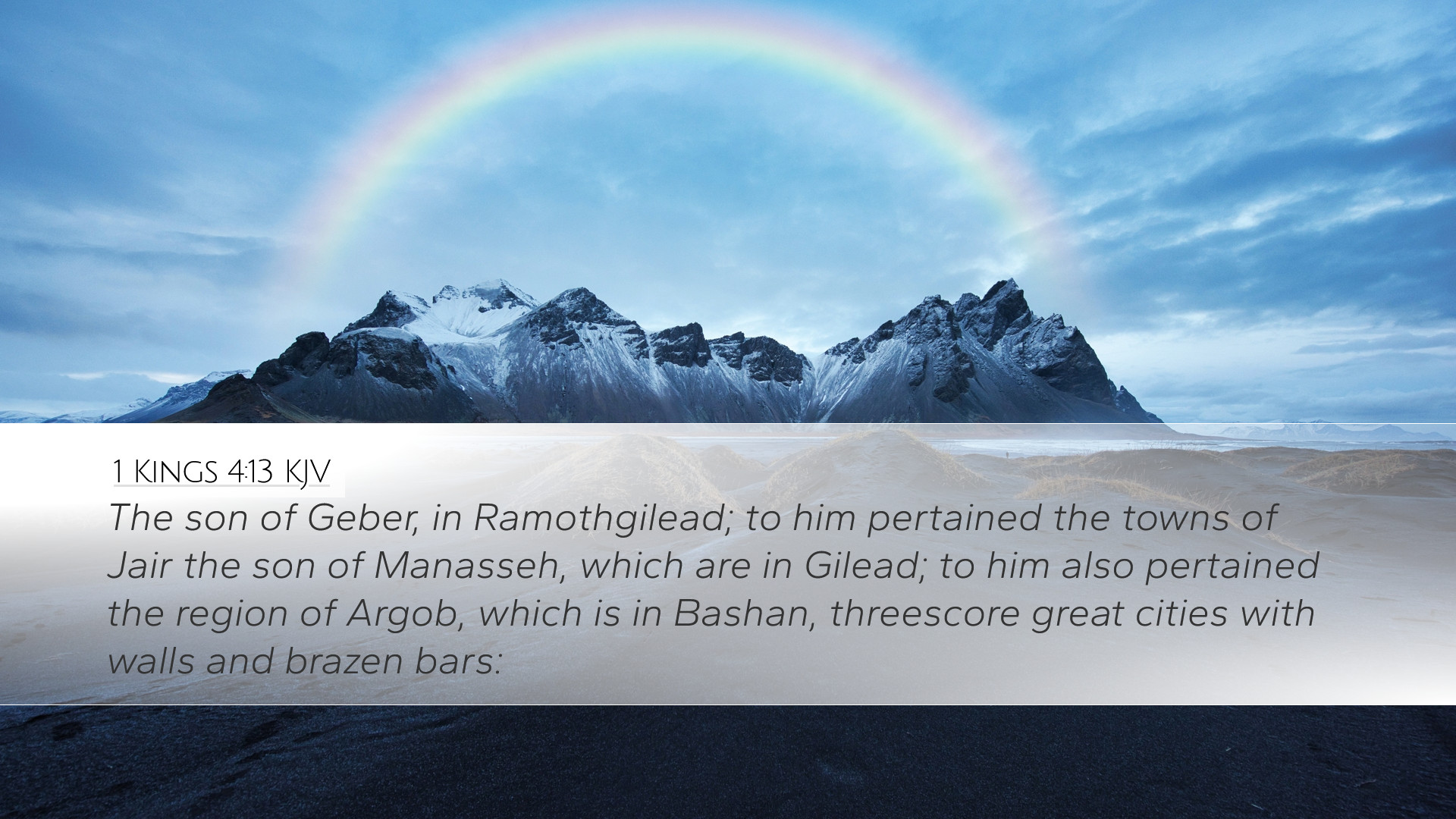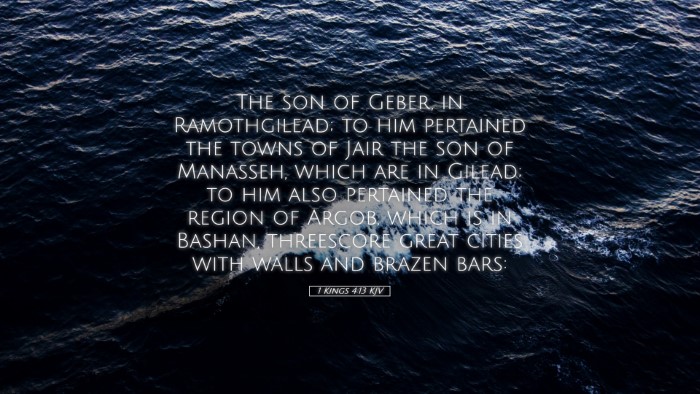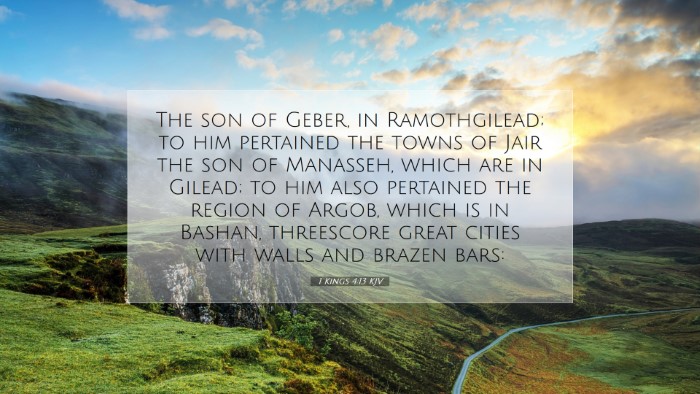Commentary on 1 Kings 4:13
Verse Reference: 1 Kings 4:13 - "The son of Geber, in Ramoth-gilead; to him pertained the towns of Jair, which are in Gilead; the region of Argob, which is in Bashan, threescore great cities, which have walls and brazen bars."
Contextual Overview
1 Kings 4 marks a significant moment in the reign of King Solomon, detailing the organization of his administration and the tribute from various regions of his kingdom. Solomon's reign is characterized by peace and prosperity, a time when the Lord had given him wisdom and understanding, allowing the kingdom to flourish extensively.
Geographical Significance
The mention of "Ramoth-gilead" and "Gilead" draws attention to key geographical locations within the Northern Kingdom of Israel. Understanding these regions helps scholars appreciate the socio-political landscape during King Solomon's reign.
Commentary Insights
-
Matthew Henry's Commentary:
Henry emphasizes God's providence in appointing Geber as governor over these regions, reflecting the divine order in Solomon's administration. The towns of Jair, known for their fortifications and strength, symbolize the Lord's favor upon the endeavors of His chosen king.
-
Albert Barnes' Notes:
Barnes provides detailed notes on "the towns of Jair," noting that they were significant cities in Gilead granted to Jair, a character from the time of the Judges. This continuity from the era of the Judges to the United Monarchy illustrates God's enduring covenant with Israel despite changing governance.
-
Adam Clarke's Commentary:
Clarke elaborates on the implications of “threescore great cities,” indicating both military might and economic stability. He points out that these cities, fortified with "walls and brazen bars,” served as a testament to Israel’s strength, warning against complacency amidst prosperity.
Thematic Elements
-
Leadership and Governance:
The passage provides insight into effective leadership. Solomon’s ability to appoint capable governors reflects a well-organized administration aimed at upholding justice and order in the kingdom.
-
Divine Providence:
The administration of these cities under God's command signifies His direct involvement in the affairs of Israel. It serves as a reminder that earthly leadership is ultimately under divine authority.
-
Historical Continuity:
The mention of towns connected to Jair over generations highlights the ongoing promises of God toward Israel, showing that historical legacies are honored and fulfilled in God's timing.
Reflections for Modern Application
This brief yet informative verse calls pastors, students, and theologians to reflect on the importance of strong leadership based on divine principles. The anointing of leaders must align with God’s will to ensure His purposes are fulfilled.
Additionally, the emphasis on fortified cities serves as a metaphor for spiritual vigilance. Just as physical fortifications protected a nation, believers today are reminded to build spiritual defenses against adversities through prayer and the Word of God.
Conclusion
1 Kings 4:13 encapsulates themes of leadership, divine providence, and the historical faithfulness of God. By studying this verse and its wider context, scholars and pastors can derive rich insights into both the character of Solomon's reign and God’s lasting covenant with Israel.


